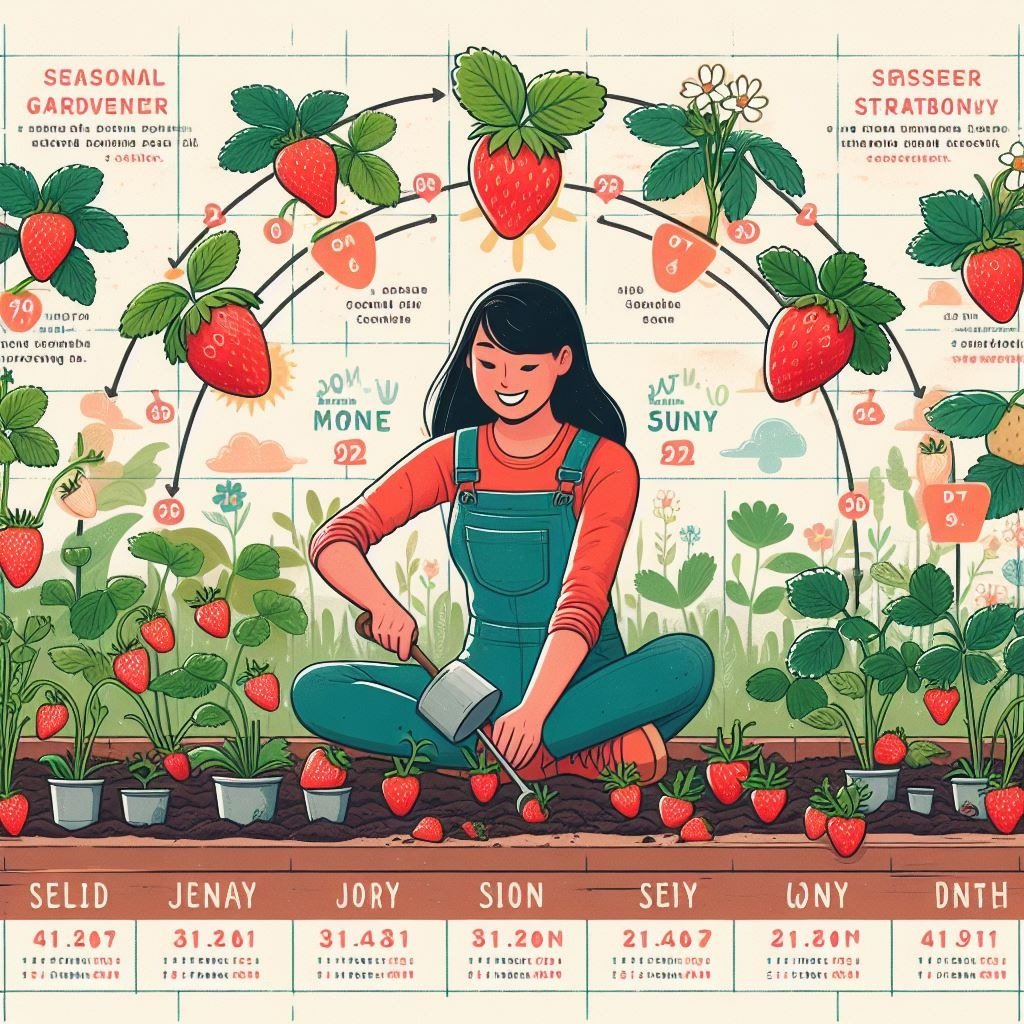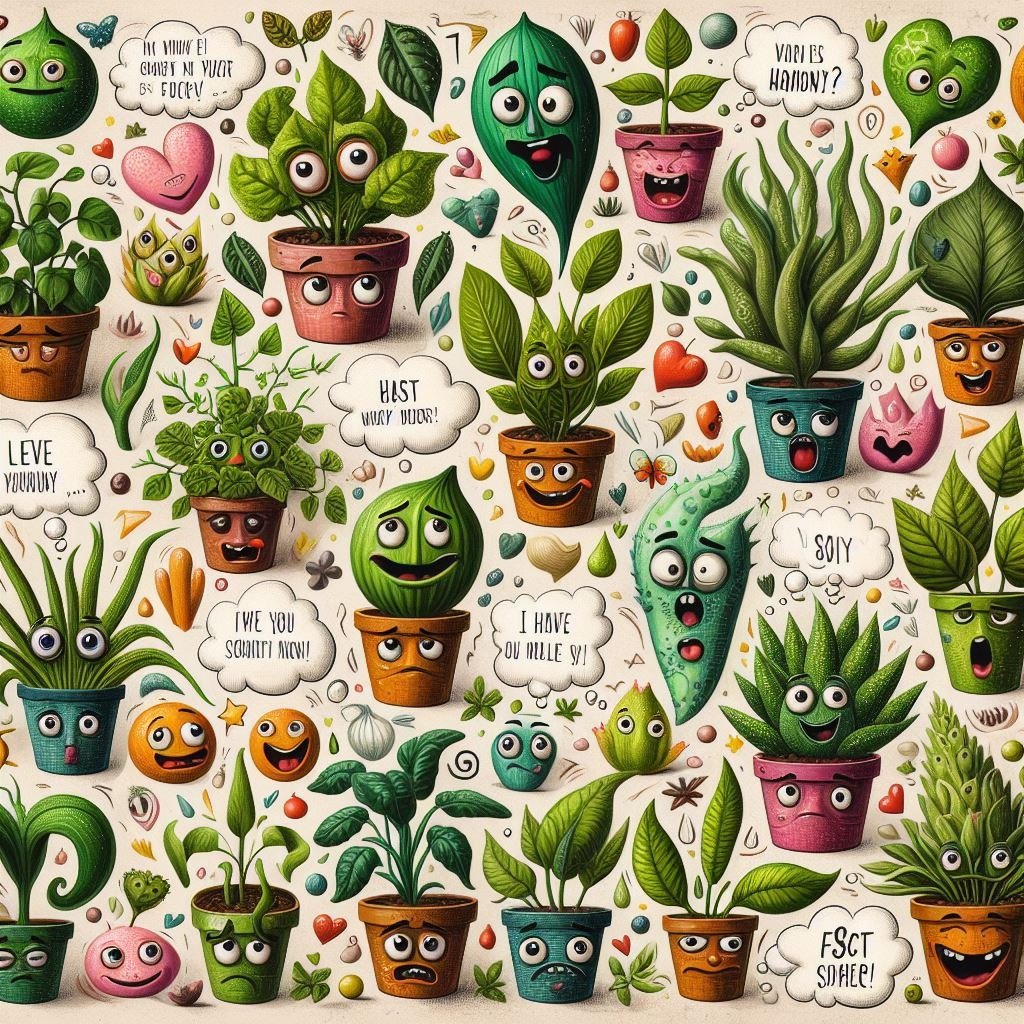
Timing is everything. When to plant strawberries for a great harvesting season is what you should worry about
When to plant strawberries In this book called “The Plot Hero’s Guide,” you are going to learn about the strategic

Do plants have feelings? This perplexing issue has kept researchers occupied for centuries in an attempt to understand the dynamism of plant intelligence; hence, constant research in this field has provided many astounding revelations. As we go deeper into this intricate life of the botanical, we uncover a world where the border between sentience and biological processes will gradually blur as the line becomes more vague.
For centuries, the world has been looking at feelings as something that is exclusively linked to the It was animals that had a central nervous system that was thought to be capable of feeling. In the past, sightings of a few plants have triggered mayhem, and this has led to the conventional wisdom that plants are nothing but a stationary bunch of organisms with a distinct ability to grow. The newly awarded scientific discovery is in the limelight, challenging conventional wisdom. This suggests that plants may exhibit behaviors that could be as far developed as perception, memory, and even decision-making. However, the results are still not consistent. Do plants have feelings? Such questioning has led to a revision of the known notions of plant life and expanded the concept of plant awareness to encompass the possibility of some kind of plant consciousness.
The most thrilling factor supporting the belief that plants are capable of feelings comes from the fact that they can respond to environmental stimulation. Environmental fluctuations, pest attacks, or mechanical damages invoke plants to change their growth patterns, release chemical signals, and even communicate with neighboring plants without any living organism being the middleman between the plants. The plants that conveniently remember the context in which they found themselves and their ability to react to the current environment speak of plant consciousness and the faculty of sensations that they have, just the way animals do.
Plants are managed using complex chemical communication that helps them reduce their response to many external stimulants. They form a system of intricate relationships that are necessary for the growth, development, and defense of plants. Some refer to these signals as plant hormones or phytohormones. There have emerged advanced communication mechanisms among plants, which have in some way influenced researchers to postulate that plants might have some form of intelligence or consciousness. Do plants have feelings? Is this a likely hypothesis because complex signal networks enable plants to adjust their life strategy in various conditions?
There is no doubt that the data from numerous experiments reveals that plants when responding in similar ways to emotions lead the scientific community to argue out, The mindset that the plants’ actions are simple biological reflexes that lack any intricate or subjective experience goes against critics views. They contend that endowing feelings to plants is an anthropomorphic construction, belittling the cognitive abilities of plant life, whose existence is devoid of feelings.
In such a way, advocates of plant sentience believe that plants exhibit tempting characteristics like learning, information processing, and decision-making ability that plants inherit from their past experiences. Studies have proved that plants can reminiscence and respond differently to their familiar stimuli, e.g., certain sounds or touch, noting that this implies their capacity to learn as human beings do, though. Do plants have feelings? This latter evidence goes against the views of the aforementioned thinking and real live plants.
A common characteristic of a scientific method is that scientists accurately solve difficult problems by using two or more scientific disciplines, such as neurobiology, plant physiology, and evolutionary biology. By employing a thorough study of the precision of cellular processes, biochemical pathways, and evolutionary adaptations of plants, scientists aspire to discover more clues about mechanisms deep inside plants that are responsible for their behavior and the creation of their responses.
The emotional aspect of the plant’s thinking is of no less value than the ethical implications of the plant’s feelings. If it is discovered that plants can sense and experience emotions, the idea that we should keep them as a data supply or an open source for genetic improvement may cause controversy about the treatment of plant beings. Do plants have feelings? This consultation can further the changes in agricultural activities, conservation programs, and the humans themselves in particular in seeing the greenery.
With plant minds being explored more and more, the contentious debate of whether plants possess feelings or not continues to exist and provide people with food for thought and discussion. Scientists may divide the scientific community; however, the mission of discovering the occurrence of plant behavior and consciousness in the world will preserve the existence of the natural criteria in our minds. Regardless of the platonic origin of the wondering, the fact that we can ponder the plant´s sentience widens our worldview concerning the incredible engineering of life in all its forms, forcing us to unravel the mystery of what all envelops our world perception.

Unlike animals that have a central nervous system to act as a transmitter of information, plants rely on the intricate web of chemical messengers and pathways to process and direct signals that enable them to sense and react to stimuli exquisitely. Studies propose that the distributed system could be a new type of intelligence or consciousness within which all biological entities are equal components.
The striking thing is that although some responses from plants could have been by chance, a lot of studies nowadays prove that plants are more competent than they are thought. They can learn, recall, and make decisions based on their past experiences. Such skills, unless explained based on a more complex information processing system than was initially assumed, always indicate intermediate life forms.

When to plant strawberries In this book called “The Plot Hero’s Guide,” you are going to learn about the strategic

Best Pruner Anyone who enjoys maintaining a lovely garden knows you should choose the best pruners. Pruners are some of